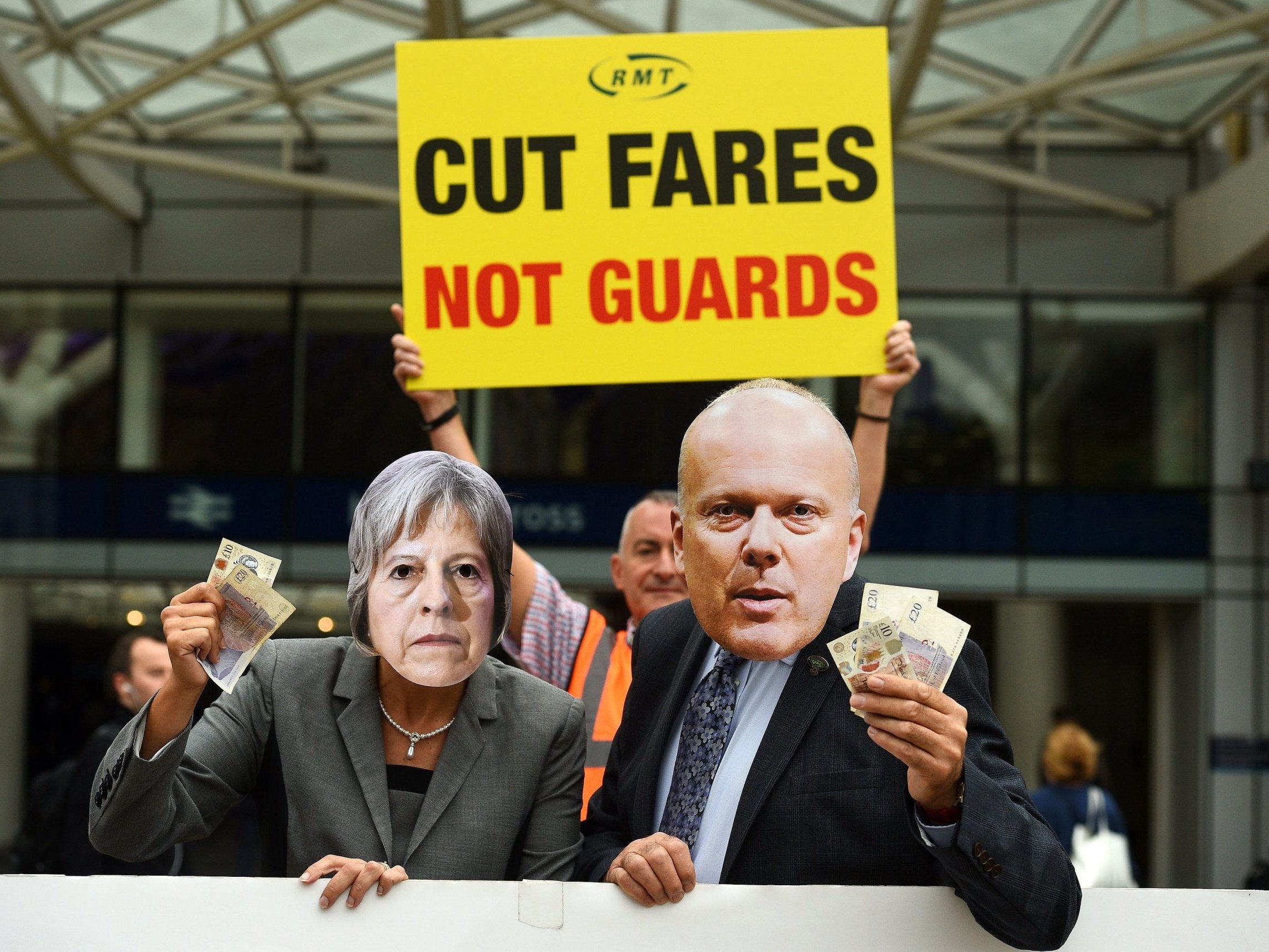How on earth is Chris Grayling still in the cabinet?
Politics Explained: The taxpayer is still paying the price of his stint as justice secretary

Of all the social media posts that followed the dismissal of Gavin Williamson, perhaps the cruellest was from Benjamin Butterworth: “Imagine being so bad you get sacked from a Cabinet Chris Grayling is still in.”
Yet May 2019 did not start too badly for the secretary of state for transport.
Five cases challenging his decision to back a third runway at Heathrow were dismissed at the High Court. And unlike the corresponding month in 2018, the Department for Transport (DfT) is not overseeing the biggest single overhaul of train timetables in UK rail history – which turned into Britain’s biggest single rail fiasco of the 21st century.
After an investigation into the thousands of cancellations and millions of passenger-hours of delay that traumatised travel in southeast and northwest England, Professor Stephen Glaister, chair of the Office of Rail and Road, concluded: “It was unclear who was responsible for what.”
Mr Grayling was clear, when addressing the Transport Select Committee, that he wasn’t at fault.
“It would have been irresponsible in my view, for a secretary of state who is not a specialist in rail matters, to intervene and say that this must not go ahead,” he told MPs.
But 2019 has not exactly seen a new dawn at the Horseferry Road headquarters of the DfT. As the cost of London’s Crossrail project ballooned and the delivery date disappeared down the track, the Public Accounts Committee castigated the department’s “project management and oversight of the railways”.
Neither is the transport secretary a specialist in ferry matters, it seems. When arranging back-up to get necessary supplies across the Channel in the event of a no-deal Brexit, his department neglected to talk to Eurotunnel – which has plenty of cross-Channel experience with ships as well as shuttles. That oversight cost the taxpayer £33m.
The ferry deals that did get signed (then cancelled) splashed away another £50m. The DfT insists the sum went to DFDS and Brittany Ferries – actual shipping firms with actual vessels – rather than the famously ferry-free Seaborne Freight.
The post of transport secretary is a particularly toxic chalice. The last Labour government got through them at a rate of one per year.
Yet Mr Grayling will soon have been at the helm of the DfT for three shambolic years, raising the bar of immunity against accusations of incompetence to unprecedented heights.
When the Conservatives’ next leader chooses a transport secretary, the present incumbent may not top the shortlist. But as a prominent Brexiteer who has stayed loyal to the prime minister, for now Chris Grayling knows that Theresa May needs him rather more than the country does.
Join our commenting forum
Join thought-provoking conversations, follow other Independent readers and see their replies
Comments